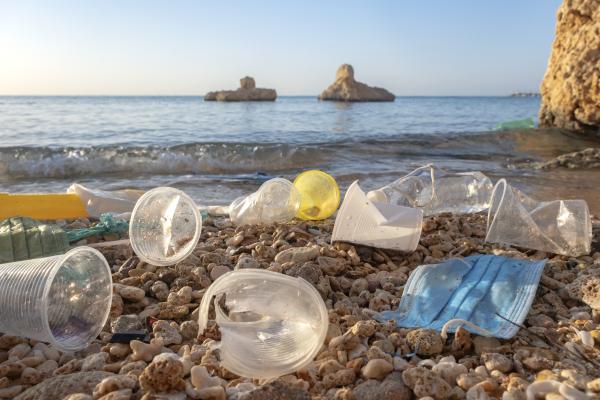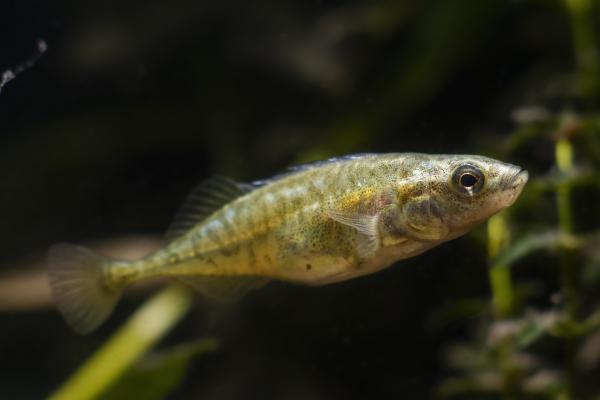
Research and innovation play a crucial role in ensuring the EU meets the objectives of the European Green Deal. The design, implementation, evaluation and review of EU environmental policies require up-to date scientific knowledge. The Treaty on the functioning of the European Union foresees that, "in preparing its policy on the environment, the Union shall take account of available scientific and technical data" (art 191).
Science for Environment Policy
Science for Environment Policy is a free news and information service published by the Directorate-General for Environment of the European Commission, to strengthen the links between science and policy. It is designed to help busy policymakers keep up-to-date with the latest environmental research findings needed to design, implement and regulate effective policies.
Horizon Europe
Horizon Europe, the current EU Research and Innovation programme, provides support to increase the knowledge on environmental challenges and to develop innovative solutions.
The main opportunities linked to the Green Deal priorities are under Cluster 6: Food, Bioeconomy, Natural Resources, Agriculture and Environment.
EU Missions in Horizon Europe put research and innovation at the centre of EU action:
- Adaptation to Climate Change: support at least 150 European regions and communities to become climate resilient by 2030
- Cancer: working with Europe's Beating Cancer Plan to improve the lives of more than 3 million people by 2030 through prevention, cure and solutions to live longer and better
- Restore our Ocean and Waters by 2030
- 100 Climate-Neutral and Smart Cities by 2030
- A Soil Deal for Europe: 100 living labs and lighthouses to lead the transition towards healthy soils by 2030
The European Environment Agency
The European Environment Agency (EEA) is an agency of the European Union that delivers knowledge and data to support Europe's environment and climate goals.
The EEA and its European Environment Information and Observation Network (EIONET) were established in 1990 with the aim of providing the European Union and its Member States with objective information necessary for framing, implementing and evaluating sound and effective environmental policies and for keeping the public informed on the state of the environment.
The EU Foresight System (FORENV)
The EU Foresight System for the identification of emerging environmental issues and related opportunities and risks (FORENV) is an early foresight exercise carried out by the European Commission, which aims to better anticipate potential risks and opportunities and to improve the quality of policy development.
The EU 8th Environment Action Programme reiterates the importance of identifying climate and environmental risks and taking action to prevent, mitigate and adapt to them, and fostering the engagement in closing knowledge gaps.
The methodology of FORENV is based on Horizon-Scanning, developed by the Commission´s Joint Research Centre.
FORENV runs annual cycles producing reports on specific topics:
- New technologies in the urban environment
- Emerging issues at the environment-social interface
- Emerging - economic, business, technological and social - innovations in the green economy of the future
- Emerging societal, economic and environmental issues that may impact our ability to deliver a zero-pollution ambition for a toxic-free environment by 2050
- Emerging environmental issues due to EU and global demographic changes
- Emerging environmental issues due to EU and global demographic changes (Video)
The current FORENV cycle's topic is "emerging environmental and other issues impacting our ability to achieve a water-resilient Europe by 2050".
Related Links
- Environmental Knowledge Community - Reflection on the future of EU environmental policy
- Knowledge Centre for Biodiversity (JRC)
- Overview of the use of the precautionary principle in environment policies, Milieu, 2018
- The precautionary principle: decision making under uncertainty, Science for Environment Policy, 2017
- Identifying emerging risks for environmental policy, Science for Environment Policy, 2016
- Integrating environmental risk assessment, Science for Environment Policy, 2015
- Survey on the Public perception of environmental risks,Collingwood, 2015.
- Public risk perception and environmental policy, Science for Environment Policy, 2014
- Secretariat-General: Strategic Foresight at Commission level
- Joint Research Centre: Competence Centre on Foresight; Foresight On Newsletters
- European Environment Agency: Drivers of Change
- Horizon 2020 Programme



